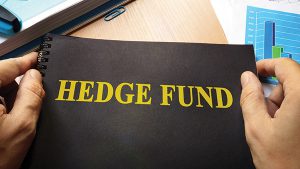They’ve been aÂround for thousands of years but they’re still tripping up foreign investors in China. Company chops are the carved seals that, when used with a red inkpad to stamp documents, confer legitimacy on corporate actions. Investors accustomed to the norms of Western business may think they control the company when they hold a majority of the shares. Nuh-uh. The chops are the keys to the kingdom. He or she who possesses them is the master.
The latest exhibit in a catalog of corporate misadventures featuring company chops is Nam Tai Property Inc. New York-based hedge fund IsZo Capital Management LP succeeded late last year in rallying foreign shareholders to wrest control of Nam Tai’s board from another Chinese developer, Kaisa Group Holdings Ltd., which it had accused of mismanaging the Shenzhen-based and US-listed company.
From the perspective of an activist investor, Nam Tai offered a fairly simple story. The company’s land holdings in Shenzhen had soared in value as the city bordering Hong Kong developed into a technology metropolis, yet its valuation had been held down by the stewardship of its debt-laden controlling shareholder. The brief, then, was straightforward: Reconstitute the board, improve governance and management, and the stock would start to reflect the company’s intrinsic value, which IsZo estimated at $40. For a time, the market bought into that narrative, with the shares rising to a 2021 high of $36.90. Today, though, shareholders who backed the hedge fund’s campaign could be forgiven for wondering what they’ve got themselves into.
Unsurprisingly, perhaps, Kaisa-affiliated top management declined to go quietly, holding on to the all-important chops and sinking Nam Tai into a morass of lawsuits. There has been some progress. Last week, a court in Shenzhen froze the bank accounts and assets of former Chief Executive Officer Wang Jiabao and former Chief Financial Officer Zhang Yu. A month earlier, the company obtained an injunction preventing Wang and Zhang from using the corporate chops and business licenses of a Nam Tai subsidiary. Yet nine months after the defeat of Kaisa (which is also based in Shenzhen), the revamped Nam Tai board still doesn’t appear to have established onshore control.
The New York Stock Exchange suspended the shares in late May because, without access to the books and records let alone possession of the chops, Nam Tai is unable to file an annual report. The stock last traded at $4.215, almost 90% down from its June 2021 high.
It’s a situation that’s difficult to picture in much of the capitalist world, with its emphasis on private property rights, contract law and the prerogative of owners to hire and fire. Imagine the CEO of an American corporation who’s just been terminated after a successful takeover leaning back in his chair and saying: “You know what? I’m doing a pretty good job. I think I’ll just stay.†In China, though, it’s far from rare.
The most prominent recent case was of Allen Wu, chief executive of the China unit of SoftBank Group Corp.’s Arm Ltd. Wu disregarded a board vote to remove him and took unilateral control of Arm China — including, naturally, holding on to the company chops. He was replaced only in April this year, almost two years after the chipmaker first tried to oust him.
The China CEO of Sorbic International Plc, a food additives company that was once listed on London’s Alternative Investment Market, was another who defied his dismissal and kept the chops.
As far back as 2004, the business memoir Mr. China offered insights into the importance of these official seals and the agonies they can inflict on the unwary overseas capitalist. The 1990s clashes chronicled by author Tim Clissold appeared to reflect the teething troubles of a country that was just emerging into the global economy.
—Bloomberg
 The Gulf Time Newspaper One of the finest business newspapers in the UAE brought to you by our professional writers and editors.
The Gulf Time Newspaper One of the finest business newspapers in the UAE brought to you by our professional writers and editors.
